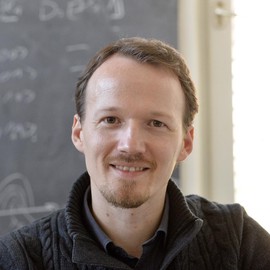A quantum annealing architecture with all-to-all connectivity from local interactions
Abstract
Quantum annealers are physical devices that aim at solving NP-complete optimization problems by exploiting quantum mechanics. The basic principle of quantum annealing is to encode the optimization problem in Ising interactions between quantum bits (qubits). A fundamental challenge in building a fully programmable quantum annealer is the competing requirements of full controllable all-to-all connectivity and the quasi-locality of the interactions between physical qubits. We present a scalable architecture with full connectivity, which can be implemented with local interactions only. The input of the optimization problem is encoded in local fields acting on an extended set of physical qubits. The output is—in the spirit of topological quantum memories—redundantly encoded in the physical qubits, resulting in an intrinsic fault tolerance. Our model can be understood as a lattice gauge theory, where long-range interactions are mediated by gauge constraints. The architecture can be realized on various platforms with local controllability, including superconducting qubits, NV-centers, quantum dots, and atomic systems.
Published 23 October 2015
